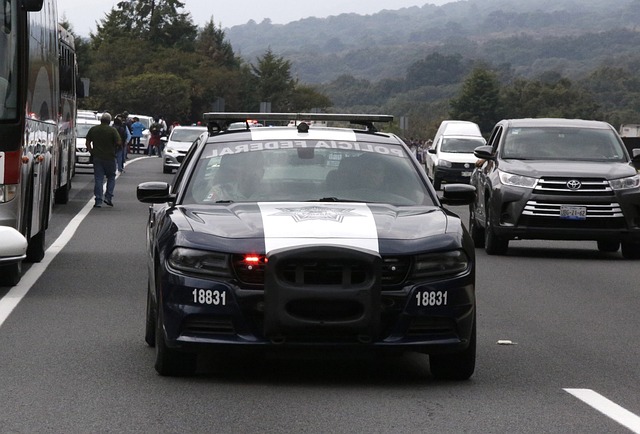Police Impound Cars for Sale
Navigating police impound car lots offers a smart opportunity to find valuable deals on vehicles. These lots feature cars impounded for various reasons, often priced to sell. While purchasing can seem complex, it involves understanding auction times, required documents, and payment methods. Each lot has its rules, so preparation is key. Opportunities are fleeting, and the best deals don't last long.

What are Police Impound Car Lots?
Police impound car lots are facilities where law enforcement agencies store vehicles that have been seized, abandoned, or involved in criminal activities. These lots serve as temporary holding areas for vehicles until they can be reclaimed by their owners or, in many cases, sold at auction. The reasons for impoundment can vary widely, from traffic violations and parking infractions to more serious offenses like drug-related crimes or theft.
Understanding the nature of these lots is crucial for potential buyers. While some vehicles may be in excellent condition, others might require significant repairs or have hidden issues. It’s important to note that these cars are typically sold “as is,” meaning the buyer assumes all responsibility for the vehicle’s condition after purchase.
How Does the Auction Process Work?
The auction process for police impound cars is designed to be efficient and straightforward. Most auctions are open to the public, though some may require pre-registration. Here’s a general overview of how these auctions typically unfold:
-
Announcement: Auctions are usually advertised in local newspapers, on government websites, or through specialized auction platforms.
-
Inspection Period: Before the auction, there’s often a designated time for potential buyers to inspect the vehicles. This is a crucial step in the process.
-
Bidding: On the day of the auction, registered participants can bid on the vehicles. The format may vary, with some auctions being conducted in person, while others are held online.
-
Payment: Winning bidders are required to pay for their purchases immediately or within a short timeframe, often within 24 hours.
-
Vehicle Removal: After payment, buyers must remove the vehicle from the lot within a specified period, usually a few days.
What Preparation is Needed Before the Auction?
Proper preparation is key to a successful experience at a police impound car auction. Here are some essential steps to take:
-
Research: Familiarize yourself with the auction rules, required documentation, and payment methods accepted.
-
Set a Budget: Determine how much you’re willing to spend, including potential repair costs.
-
Vehicle History: If possible, obtain vehicle identification numbers (VINs) of cars you’re interested in and run background checks.
-
Inspection: Take advantage of any pre-auction inspection periods to examine vehicles thoroughly.
-
Financing: Arrange financing in advance if needed, as most auctions require immediate payment.
-
Transportation: Plan how you’ll transport the vehicle if you win, as many auctions require same-day removal.
What are Effective Bidding Strategies?
Successful bidding at police impound auctions requires a combination of strategy, discipline, and sometimes a bit of luck. Here are some tips to improve your chances:
-
Start Low: Begin with a low bid to gauge interest and competition.
-
Know Your Limit: Stick to your predetermined budget to avoid overpaying.
-
Watch for Red Flags: Be cautious of vehicles with unusually low mileage or signs of severe damage.
-
Stay Calm: Don’t get caught up in bidding wars or emotional decisions.
-
Be Patient: If you don’t win your desired vehicle, wait for the next opportunity. New auctions occur regularly.
What Should You Consider After Winning a Bid?
| Consideration | Details | Estimated Cost |
|---|---|---|
| Immediate Inspection | Thorough check of vehicle condition | $100 - $200 |
| Title Transfer | Paperwork and fees for ownership transfer | $50 - $200 |
| Insurance | Obtaining coverage before driving | Varies by vehicle and driver |
| Repairs | Potential immediate fixes needed | $0 - $1000+ |
| Transportation | Towing or driving costs | $50 - $200 |
Prices, rates, or cost estimates mentioned in this article are based on the latest available information but may change over time. Independent research is advised before making financial decisions.
After successfully bidding on a police impound car, there are several important steps and considerations:
-
Thorough Inspection: Even if you inspected the vehicle before the auction, conduct a more detailed examination after winning the bid.
-
Title Transfer: Complete all necessary paperwork to transfer the title into your name.
-
Insurance: Arrange for insurance coverage before driving the vehicle off the lot.
-
Repairs: Assess any immediate repairs needed and factor these into your overall cost.
-
Registration: Register the vehicle in your name as soon as possible.
Purchasing a car from a police impound auction can be an excellent way to find a good deal on a vehicle. However, it’s crucial to approach the process with caution, preparation, and a clear understanding of the risks and responsibilities involved. By following the guidelines outlined in this article, you’ll be better equipped to navigate the world of police impound car sales and potentially drive away with a great bargain.




